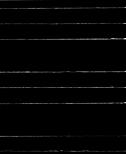
 |
 |
Out on the 10, in Riverside County near a K-mart and an empty lot, my car broke down with a blown tire. The truckers heading East towards Phoenix couldn’t give a shit. I wondered if any of my friends would schlep out here to pick me up? Or maybe this was an elaborate prank of theirs to get rid of me? Either way, it was one of those moments where you take stock.
Perhaps it is time to redefine the margins. There you won't find 'victims' that beg for media attention. Instead you'll see that people have moved on from this obsession with TV and mainstream media and the whole 'representation' business. I personally don't see anything utopian in all that.
- Geert Lovink, co-organizer of CUNY Buffalo Free Cooperation
The Shits Hit the Fan (gotta call my neighbor) is the name of the art project we’ve put together for this third issue of the Journal. All of our friends live in structures with walls. They have their own phones, sidewalks and driveways that connect them to other houses. This issue comes out before the 2004 Presidential Election with its surreal allusions to holistic “democratic” community. Our response to this moment is to think about ways to strengthen our homes and networks, to better serve ourselves and those we are in solidarity with. No matter whom we vote for, the government still wins and Schwarzenegger isn’t coming to tow my Toyota. Social change occurs when, in coordination with others, we change the ways we live. As such this issue looks into some ways that people define themselves and their communities. Casually it surveys how our communities represent themselves to outsiders and how we relate with potential allies. Conceptualizing this issue in December 2003 we noticed that other likeminded folks were thinking similarly about networks. Conferences such as the National Convergence of Artists, Educators and Organizers in New Orleans, Versionfest in Chicago and Free Cooperation in Buffalo have been “gathering the tribes”.
In response to the question, "What brought you here to New Orleans," a curious theme seemed to emerge in the room: feelings of isolation or futility, feeling confused about how to move forward in the current political climate, feeling that something urgent needs to happen without knowing exactly what it is or how to do it. The feeling that we are indeed in a moment of great historical import, a moment crying out for intervention, and a profound need to connect with others to figure out what comes next.
- From What Happened in New Orleans? Reflections on the National Convergence of Artists, Educators and Organizers- Andrea Assaf
In conversations around this issue we imagine these conferences as “new convergences”- mindful that the “convergence space”, with its goal of democratizing resistance, has been a key innovation of the anti-globalization movement. We noted that political forums like the World Social Forum and projects like DSLR’s are a lasting legacy of the pre/post-Seattle moment. In talking about convergences, Jon Cates says that Versionfest “functions as both a network and as a node within larger networks of meaning. This system approach disables any baseless assumption of finality or completion within the project.” We find Versionfest’s desire to make a point while not being the point, as both admirable and representative of this legacy. Edmar, also of Versionfest adds, “I believe an aim is to activate local cultural producers and activists to engage in counter-cultural intelligence, and to organize multiple responses to a myriad of local, national and international issues. To become better at intervening and countering the practices which seem centered around, for example, exploitation and control.” When we invest in one another’s practices and hone each other’s skills, we all benefit. Fritz Haeg, who from his geodesic dome runs the hybrid cultural center Sun Down Salon, notes the apocryphal tale of the Olympic Water Polo Team, which is inevitably made up of several residents from the same small town.
___ Stranded in Riverside, I end up calling Triple A.
Clearly AAA enables the automobile culture which is paving over the planet-
but hey, with my contribution of a few bucks a year to the association
for membership- I get such remarkable services. The Journal is
not asking that our networks create a radical road-towing agency, though
it’s a great place to start (impractically we’d prefer a solar
railroad). But we need to stop debating the question of whether as individual
artists and media makers we are capable of engaging politics recognize
that we each do things already, in our own ways, to effect and shape our
culture. And this may be the point. Not everyone is, nor wants
to be, an image of an Iraqi prisoner reported on by Sixty Minutes, a Yes
Man, Michael Moore or a participant in his productions, Randi Rhodes or
Al Franken, a book by an ex-White House staffer, Ani DiFranco, a star on
Will and Grace, Rob Coronado or Sherman Austin, a member of N55- some of
us are painters, green scientists or simply humanists. All of us should
consider our positions and non-positions within the social continuum as
equally legitimate and serious.
Marginalization (at times still an interesting tactic) is a concept left-over from a less integrated society. When we call ourselves activists, artists, cultural workers, journalists; where-and-however we place ourselves in the culture spectrum- we announce an intention to change the world. Both informally and formally, we need to act in ways that meet this challenge by seriously relating to one another as team-mates, not as competitors standing for our own unique métier, practice, subculture or issue. We need to internalize a human resource manager within our head and deal with teammates as equal yet distinct collaborators. From the person who scrawls an anti-corporate graffiti slogan on his school’s coca-cola vending machine, to the curator of the Venice Biennale. When we act otherwise, we cease being relevant or effective. We are convinced that through the act of forming these relationships-that when we talk with others who share a similar mindset, in spite of the absence of accompanying fanfare, we are actively engaging in the process of creating the counter-spheres to the unipolar narrow minded concept of our national spectacle of fear and total war.
After the loss of a counter model for capitalism (which socialism, in its real existing form presented until its collapse) alternative concepts for economic and social development face difficulties at the beginning of the Twenty First Century. In the industrial nations "alternatives" are only broadly discussed when they do not question the existing power relations of the capitalist system and representative democracy. Other socio-economic approaches on the other hand are labeled utopian, devalued and excluded from serious discussion if even considered at all.
- Statement from Alternative Economics, Alternative Societies, by Oliver Ressler
I think that today political utopias can no longer be hierarchical… a hierarchy of main stuff and minor stuff, of the fields of the social that are seen as important and others that are seen as not so important… We know a lot of utopian thinking that says, “The core business, what we call economy, is what big business does. It is how tools are made; other aspects like raising children or doing creative work (acting together in a modest and proper way) are minor stuff and have to follow the rules of the others.” I think this is illegitimate because it is always combined with a hierarchy between different people doing different stuff in these utopian societies, and this is a clear case of inequality. So one could say you have to bring utopia back to the kitchen. It has to work there and the rules of the kitchen have to be the rules of bigger cooperations- not the other way round. Everything that people do together is a kind of cooperation because they share work and they use the work and the experience and the bodily existence of others…
-Christoph Spehr as quoted in Oliver Ressler’s Alternative Economics, Alternative Societies